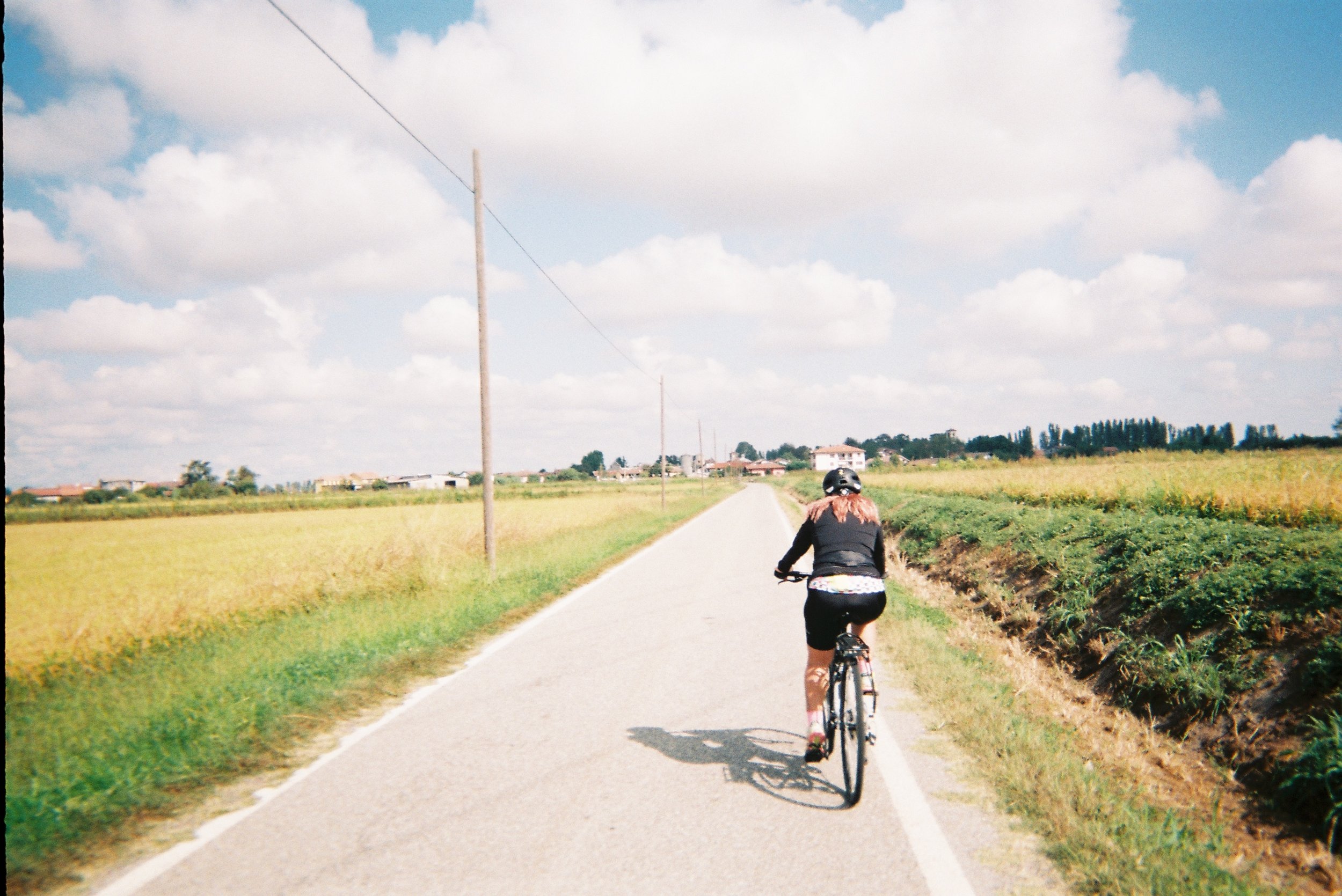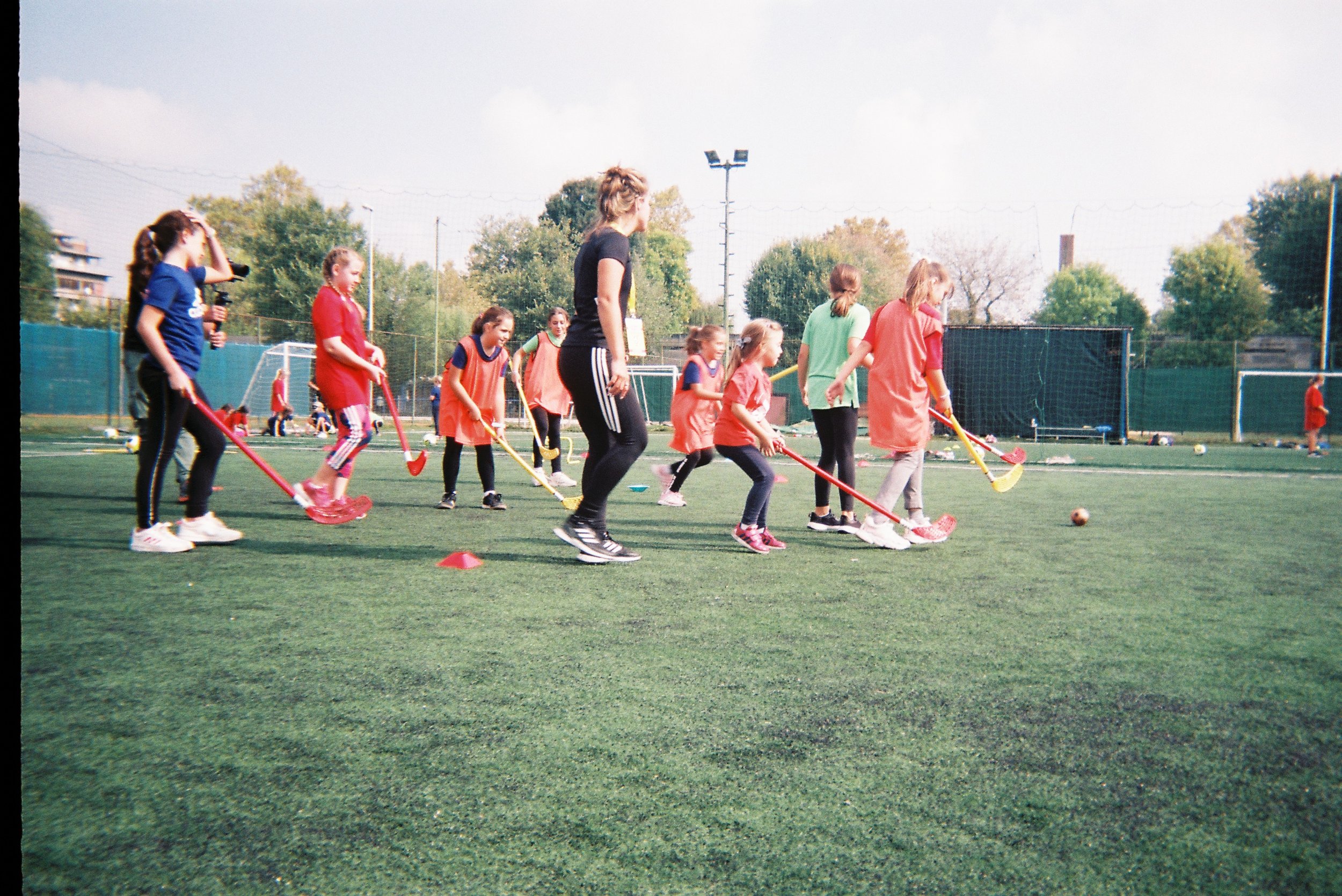Scoring For The Future
Margherita Cicolin, Italy
We have teamed up with the adidas Breaking Barriers Project to tell the stories of six coaches and leaders from sports organisations across Europe - from Spain, Netherlands, Croatia, Serbia, and Italy. The project empowers women to undertake leadership training which helps to break the barriers that girls across Europe face, giving them easier access to sport. Margherita Cicolin is a coach with Balon Mundial in Turin, Italy.
Can you introduce yourself and tell us about how you got involved in sport?
My name is Margherita Cicolin, and I am from Italy. I was born and raised in Turin, a city in the north-west of Italy and I still live there. It is a small city but with a very important history.
I started working for Balon Mundial three years ago through the Civil Service and I still work for them as a coach. My main role is to coach the two football teams (men’s and women’s), but I also help with the logistics of events and other administrative roles. I was involved because I have a master’s degree in sports and physical education, and they needed a hand with both teams. I train players not only in soccer skills, but also in soft skills we learned from our "Scoring For The Future" manual that Balon Mundial created. These skills are evaluated during the year and players are informed about which skills they are developing.
I am a Champion for the adidas Breaking Barriers Project. I started two years ago. It happened thanks to Balon Mundial! I was told that there was a chance to join this adidas project and become a future Champion. I submitted the application and here I am!
What has your sports journey been like up until now?
My journey through sport was not easy. When I was younger, I wanted to play football, but my parents did not want this. I played many other sports in my life, but I always played football every possible time I could.
After high school I chose SUISM, the university of physical education, because I loved sports and it was the best choice for my studies with many practical subjects. My degree in motor science and sport gave me the ability to be a sports instructor and then become an athletic coach. During and after college I started to train not only in football but also other sports.
The barriers I have encountered most recently are the great difficulty of recognising my work and therefore of receiving the right compensation for what is done. In addition, being a woman brings a lot of prejudices and therefore also limits the possibilities to access more paid jobs in the sports field. It is only when people see you at work and see that you know what you are doing that they start to say, "You know, you are not so bad" or "I did not think you were so good". These are the same words they used to say to me when I played soccer with other children when I was little. So, I have always had to prove with facts what I know and what I could do to change people’s minds.
What did you try to capture with your photos?
We took all the photos during a project called "Bike Ride - The Future Is Equal". The aim was to convey the message of breaking down barriers in sport and increasing the visibility of women’s sport. We decided to cross the north of Italy to reach our colleague Dunja in Croatia and to do so we used bikes!
The cycle ride was divided into stages, each about 75-90 km. We started from Turin, then we passed by Vercelli, Milan and Monza, Brescia, Desenzano del Garda, Verona, Vicenza, Monastier di Treviso, Udine, Trieste, Rijeka, and Zagreb. In all I rode my bicycle for 570 km.
During the ride we did a workshop in Verona on LGBTQIA+ and sports. We met the local authorities of Treviso and Trieste, and while in Udine we met several associations that focused on the development and visibility of women. Finally in Zagreb we did the final event in collaboration with CCPA, the adidas Breaking Barriers Project partner in the Balkans.
The event in Zagreb was memorable. After the pandemic, it was emotional to finally see so many people together who came to play sports. The girls tried various sports stands, learned new things, and had a lot of fun. For me it was a nice experience to speak in another language and learn a few words of Croatian. It was also wonderful to be able to see Dunja and the other Croatian champions after a year of online work.
In these photos there are people I have met or who supported us during the bike tour. There are cyclists who have accompanied us during some stages, as there were days when people who wanted to join us could pedal with us. There are also people we met during the workshops and who participated in the final event in Zagreb.
Was there a wider meaning with the photos? What do these images mean to you as a Champion of the adidas Breaking Barriers Project?
I wanted to capture the emotions I had in that specific moment. Some represent moments of tiredness or happiness or light-heartedness that I lived. You can also see people who were often backstage during the Project. My favourite photos remind me of when I was young!
As an adidas Breaking Barriers Project Champion, these photos show that change is possible; that sometimes there are difficult moments, but you can overcome them; that if you want to aim high, you can do; that collaboration between foreign countries and different cultures is feasible; that it is possible to be positive role models for children; that there is hope for women’s sport, but the road is still long.
The impact of Breaking Barriers has been huge. It has allowed a lot of girls and women to see that they are not the only ones thinking the same way and if they want, they can change the lives of children. It is important we continue to give them the tools and knowledge to implement change.
What are the opportunities for women and girls to play football in your community and in Italy? What role does football play?
Football (but also rugby) is important in my community, primarily because it is the national sport and unites everyone (always and only when the Italian national team plays) from the oldest to the youngest. This is not only from those who have been Italian for generations but also from the children of people born in Italy because they feel Italian, and this is right. Secondly, football is a sport that is actually very simple to play, and everyone learns easily. Lastly, football has many positive values that are often obscured by bad attitudes and behaviour of players.
Opportunities to play football (but also any sport considered masculine) for a girl are now growing and improving, but there are still plenty of barriers to overcome - both cultural and having access to sport.
What does football mean to you? What ambitions do you have for the future?
Soccer has been my salvation in many difficult moments. Kicking a ball was my chance to vent my stress and nervousness and not to do other stupid things. I hope that in the future it can be the same for other girls who have had difficulties. Football can create the change necessary to create better people.
My greatest ambition is to become an important soccer coach not because of fame, but because it is important to train a team well. If that is not possible, I have two other objectives. The first is to continue as a sports instructor with children to make them understand the importance of movement and the right values. The second is to become a teacher because I believe that what you learn as a child remains for a lifetime. If you learn how to move well and what is right or wrong, then you will be able to behave and move well in the world even as an adult. I would like to be able to ensure that Balon Mundial also has a youth section (no matter the sport) to transmit all these important values.
What do you think the future looks like for football and sport in your community and country? What do you want to change? How would you improve gender equality?
In the future I hope that sport (not just football) will become one of the most important aspects of “mens sana in corpore sano". People said this in the past and they were right. If your body is fine, your mind also benefits. I therefore hope that in my community sport will no longer be in the background but will have a level playing field.
I would like to change the system of management and remuneration that always sees great inequalities between the sexes but also of the importance of coaching roles. We must remember that without coaches there would be no athletes.
The best way for me to improve gender equality now is to continue to show that if you have a goal, you can reach it. I want to continue to do my best to be a good role model.
To learn more about the adidas Breaking Barriers Project, visit: https://www.adidas.co.uk/breakingbarriers
Series edited by Emma Walley.











